Peter Oswald
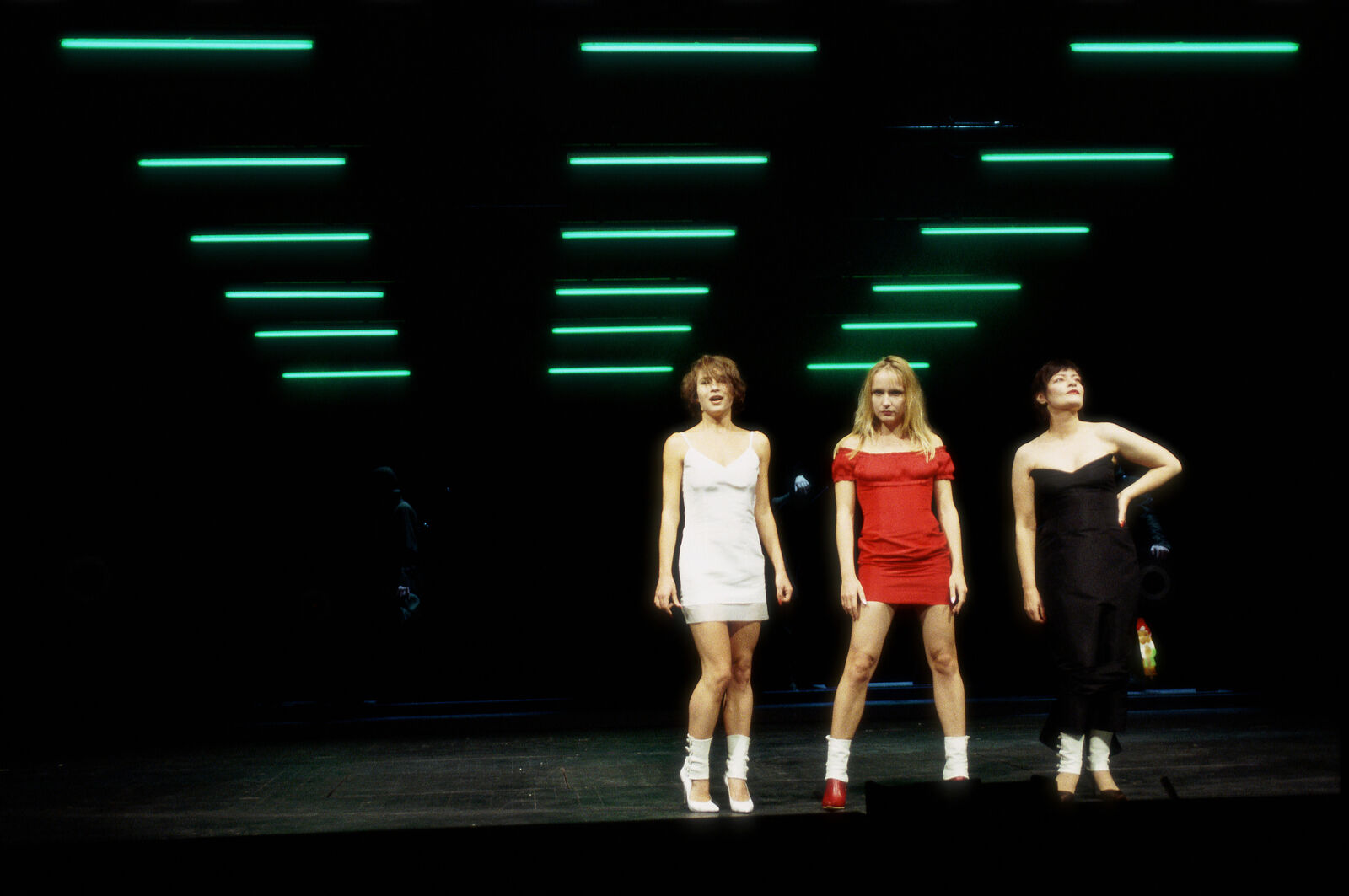
Elfriede Jelinek, Der Tod und das Mädchen I–III (2002), play, with Andrea Wenzl, Friederike Bellstedt, and Josefin Platt, Schauspielhaus Graz, 2002, photo: A. T. Schaefer

La Fura dels Baus, OBS/ESSION (2000), play, Waagner-Biro Halle, Graz, 2000, photo: A. T. Schaefer

Zaha Hadid Architects at Latente Utopien. Experimente der Gegenwartsarchitektur, Landesmuseum Joanneum, Graz, 2002, photo: Margherita Spiluttini; courtesy of the artists

Beat Furrer, Begehren (2002–03), musical theater, Schauspielhaus Graz, 2003, photo: J.J. Kucek
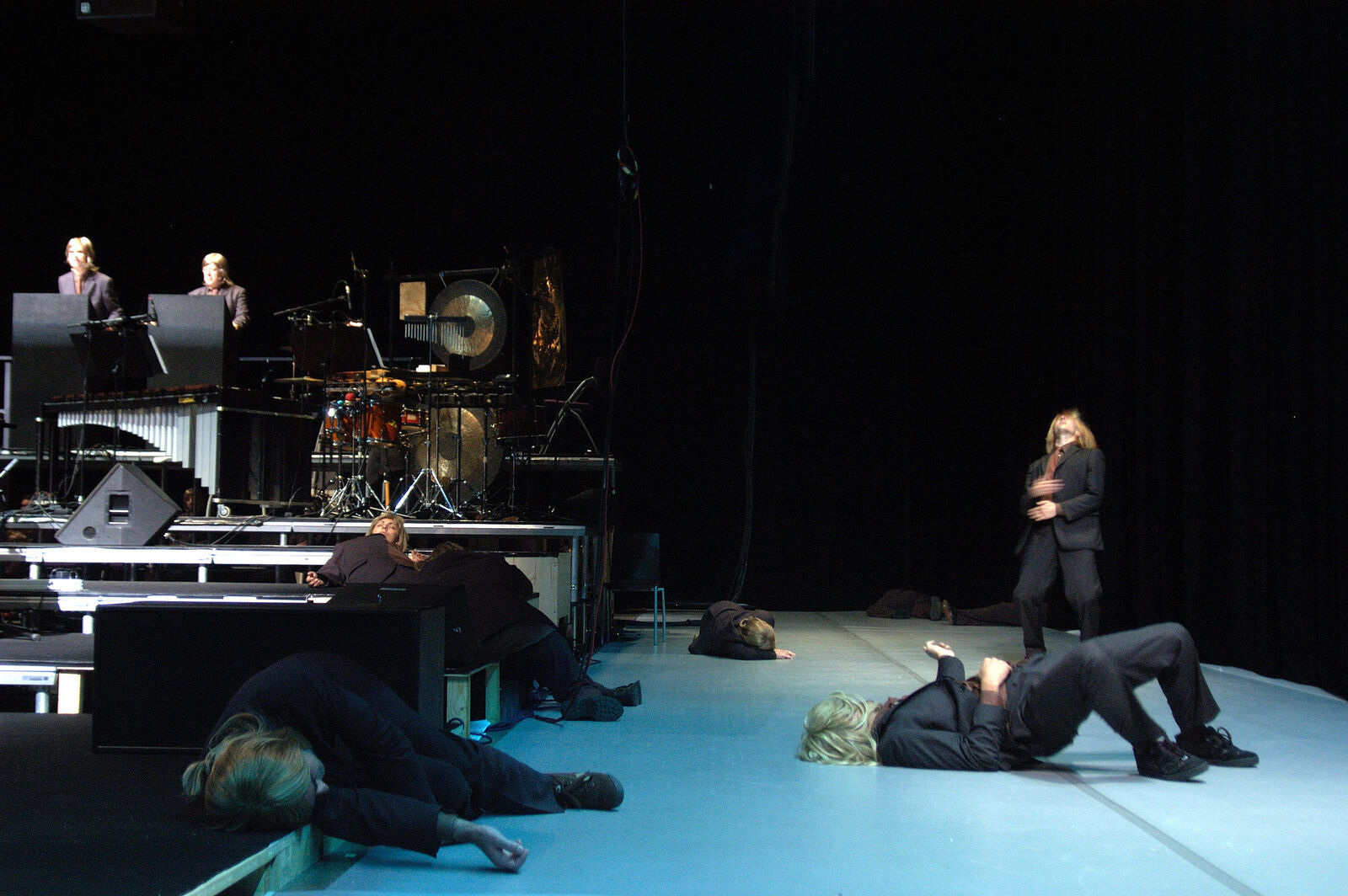
Bernhard Lang, Das Theater der Wiederholungen (2000–02), Musical Theater, Helmut List Halle, Graz, 2003, Photo: J. J. Kucek
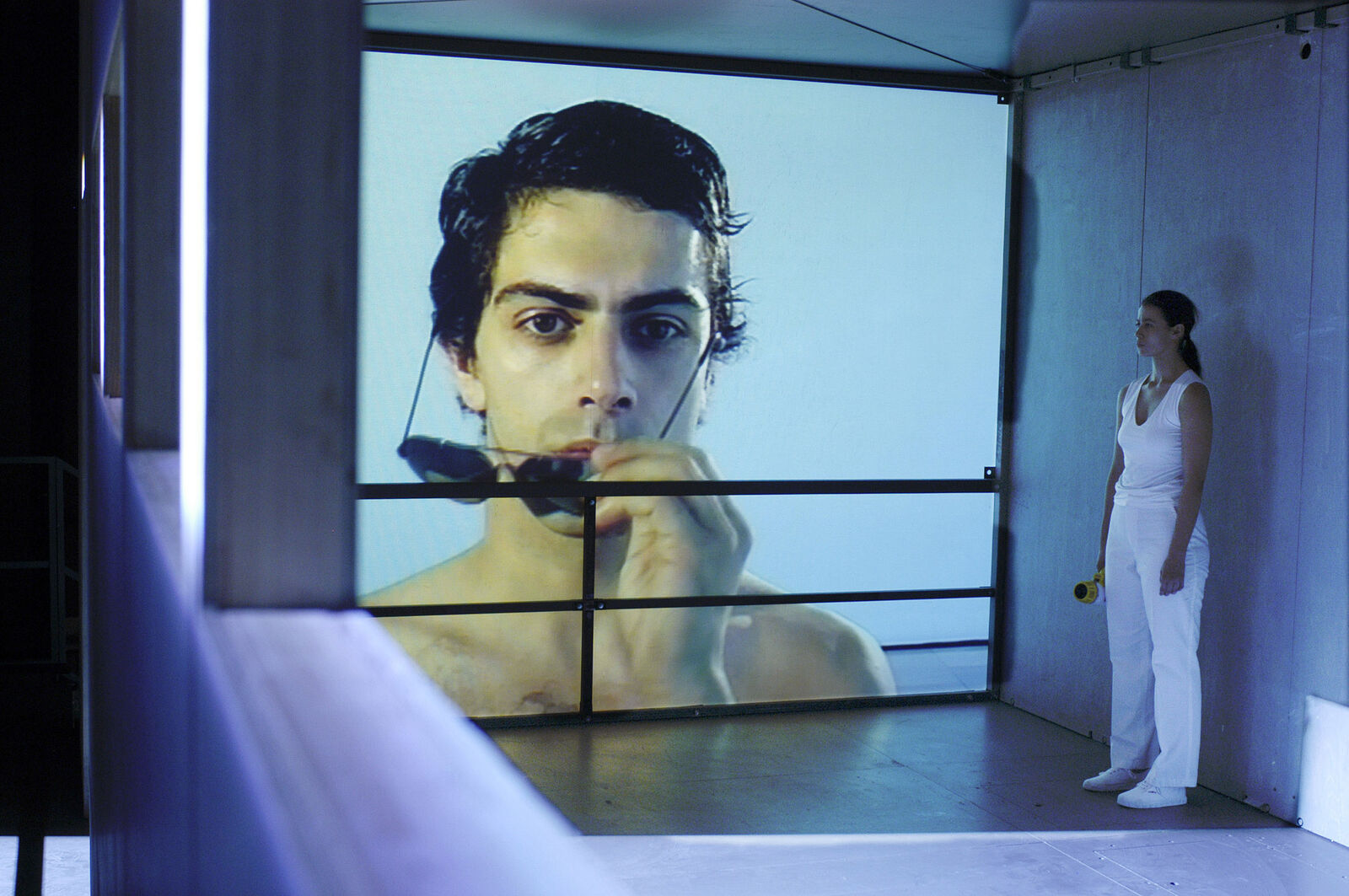
Sasha Waltz, insideout (2003), choreographical installation, with music by Rebecca Saunders, Helmut List Halle, Graz, 2003, Photo: Peter Manninger

Kathrin Röggla, junk space (2004), play, directed by Tina Lanik, Kristallwerk, Graz, 2004, photo: Elvira Klamminger / Jakse

Wolfgang Bauer, Foyer (2004), play, directed by Monika Klengel and Pia Hierzegger, Helmut List Halle, Graz, 2004, photo: A.T. Schaefer
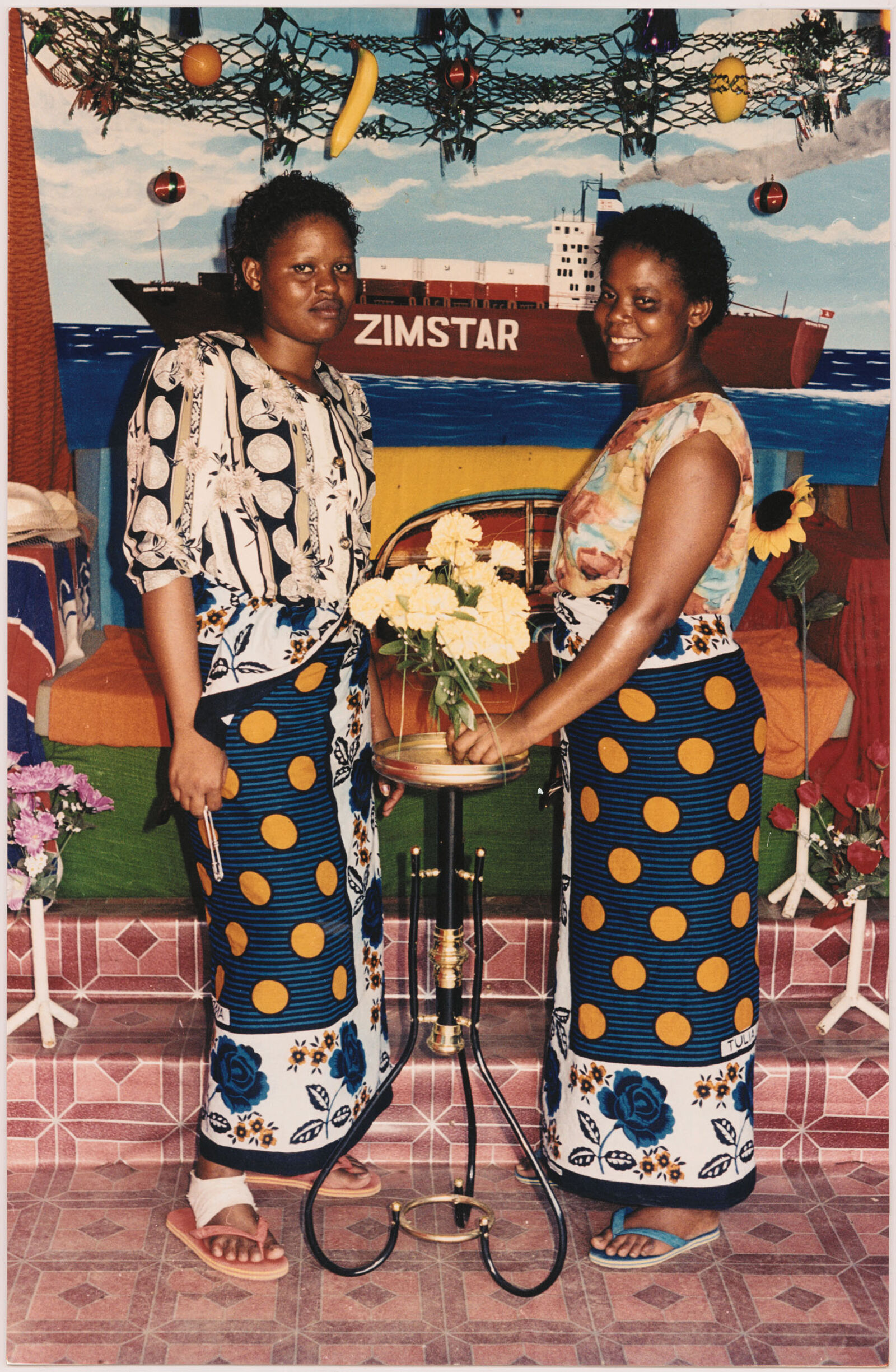
B. Wandera (Likoni Ferry Fotograf from Mombasa, Kenia), Photography, in ABBILD. Recent portraiture and depiction, Landesmuseum Joanneum, Graz, 2001, from the collection of Heike Behrend
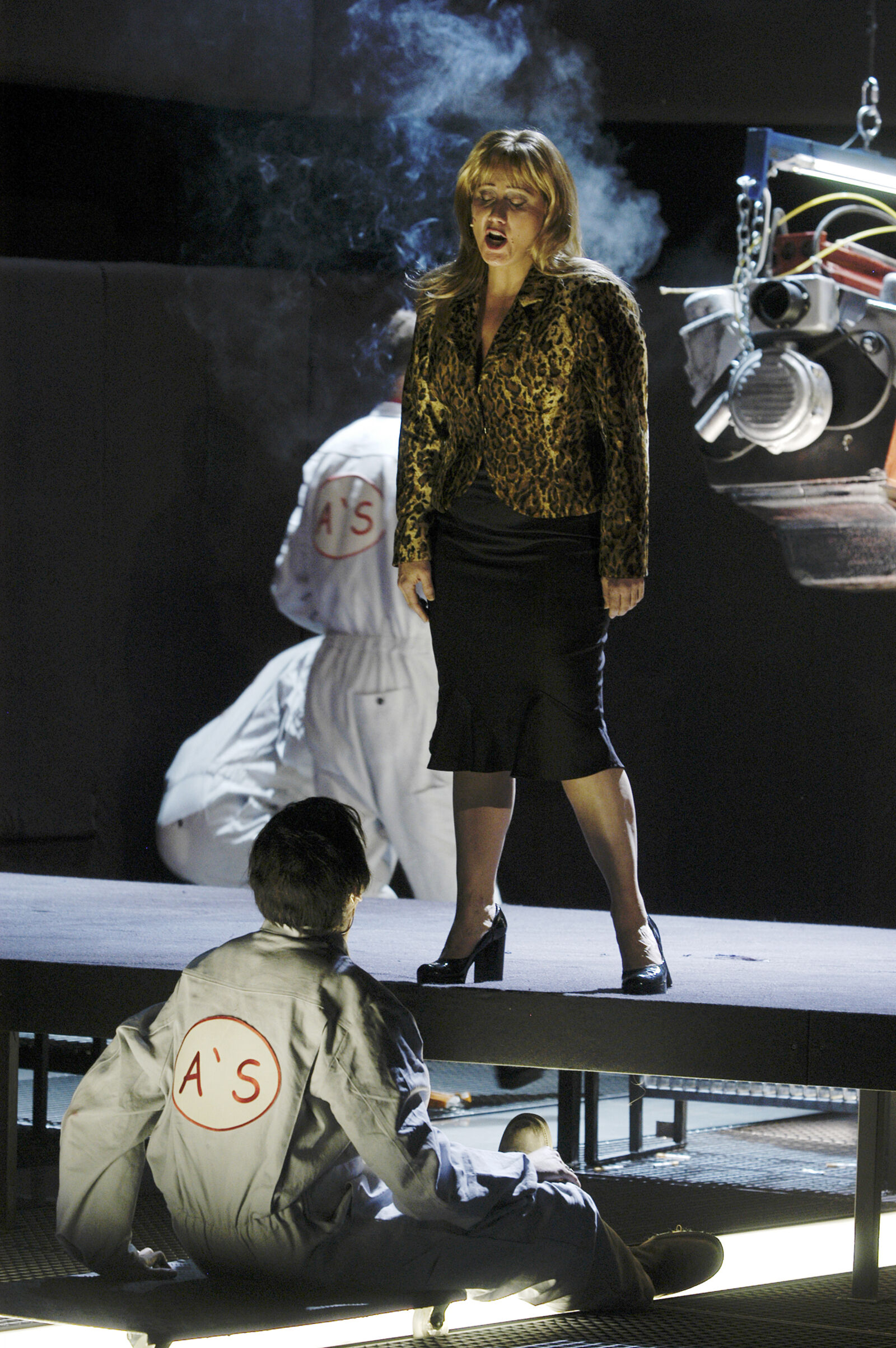
Olga Neuwirth, Lost Highway (2003), Musical Theater, with Constance Hauman, Helmut List Halle, Graz, 2003, Photo: Peter Manninger
2000–2005
The musicologist Peter Oswald, director of musikprotokoll from 1988 to 1990, artistic director of the Klangforum Wien in Vienna (1992), and founder (with Barbara Fränzen) of the KAIROS CD label for Neue Musik (1999), started his first steirischer herbst two weeks later than usual with a financial gap of 2.8 million schillings (ca. 300,000 euros), caused by the departure of an international cooperation partner. Oswald nevertheless stuck with the planned program and his festival vision of “developing a radiant power that can also be socially effective.”1
In his introduction to the program booklet for steirischer herbst ’00 (2K), Oswald did away with an overarching theme and instead invoked a “‘new modernity’ that reestablished the dialectical references to political and social contexts denounced by postmodernism.” As a “festival that surveys the current moment,” steirischer herbst offered itself as a forum for “such artistic manifestations that deliberately reflect changes in society, but also confront the fears and uncertainties that come along with them,” and thus posited “an explicit counterpoint to politics”:
While politics follows a logic of simplification and tends to react to phenomena of globalization and the fears generated by it with reductionist explanations of the world that merely promise a false sense of security—and, in extreme cases, are able to suggest this solely by invoking bogeymen—complexity and differentiation are part of the logic of artistic work.
He believed that the examination of art demands a willingness to open oneself up to the new, the alien, and the unfamiliar. In the years that followed, steirischer herbst was presented under the overarching themes of Zerfall und Widerstand: Die neue Radikalität des Subjekts (Dissolution and Resistance: The New Radicalness of the Subject, 2001), Fremdkörper(Foreign Bodies, 2002), Europa (2003), … Krise ist immer … (Crisis Is a Constant, 2004), and polis on display (2005).
The new art director, Ecke Bonk, designed a playful logo inspired by programming language that seems to treat the letters “her” as a character class and make associations with the Styrian risc as well as the repeat sign in music: “steirisc[:her:]bst.” The program booklet in 2000 once again included the division into genres that had been done away with under Frisinghelli: theater/musical theater/dance theater/performance, interdisciplinary events/theory/symposium, media art/visual art /design/architecture, music/literature/film, and Styrian events. These categories were abandoned again the following year. Starting in 2003, a distinction was made between staged and visual art, architecture, film, literature, music, interdisciplinary events, and Styria.
Oswald’s artistic directorship was characterized by large musical theater productions (called “scenic art”) and exhibitions with a broad impact. The opening evening in 2000, which was designed by the Catalonian performance and action theater group La Fura dels Baus with Wolfgang Mitterer’s composition White Foam, was one of the high points of steirischer herbst. The commissioned work Begehren (Desire) by Beat Furrer was honored as the premiere of the year in 2003 by the renowned magazine Opernwelt. Other important musical high points were Lost Highway by Olga Neuwirth, after David Lynch’s eponymous film (2003), Bernhard Lang’s Das Theater der Wiederholungen (Theater of Repetition, 2003), choreographed by Xavier Le Roy, as well as Peter Ablinger’s modular city opera Opera/Werke (Opera/Works, 2005).
For theater productions, Oswald engaged the critic Wolfgang Reiter as a dramaturge, who found “the right directors for the right plays in several cases.”2 For instance, he had three different directors stage Elfriede Jelinek’s trilogy Der Tod und das Mädchen I‒III (Death and the Maiden I–III) on one evening and brought big names like the Canadian director Robert Lepage (the far side of the moon, 2000), Dimiter Gotscheff (for Dejan Dukovski’s Das Pulverfass [The Powder Keg], 2003), and Sasha Waltz (insideout, 2003) to Graz.
Oswald was also an early and consistent promoter of the author, actor, film director, and dramaturge Klaus Händl, alias Händl Klaus, and facilitated his breakthrough as a playwright. Although his first play, Ich ersehne die Alpen; So entstehen die Seen (I Yearn for the Alps; This Is How Lakes Are Formed), flopped in 2001, two years later the magazine Theater heute selected Händl Klaus as young playwright of the year and invited him to the Berliner Theatertreffen with (wilde)—der mann mit den traurigen augen, a coproduction with Schauspiel Hannover ([Wild]—The Man with the Sad Eyes).
While Peter Vujica, as the former director of musikprotokoll, turned to pop culture as the new avant-garde during his artistic directorship and Christine Frisinghelli viewed music as a social practice, Peter Oswald brought back electronic modernism. During his time with musikprotokoll, Oswald had included a younger generation of composers (such as Beat Furrer, Péter Eötvös, Adriana Hölszky, Robyn Schulkowsky, Peter Ablinger, and Olga Neuwirth) in the program, and he continued this development during his time as artistic director with, among others, Georg Friedrich Haas and Johannes Maria Staud. This culminated in 2003, when Graz was the European Capital of Culture and new compositions by Beat Furrer, Olga Neuwirth, and Bernhard Lang were performed at the Helmut List Halle, which had been erected specifically for this purpose. Since then, the Helmut List Halle has been a constant as a venue for steirischer herbst.
Oswald banked on big names and a broad impact in his exhibition projects such as Fashion Will Go Out of Fashion by Rudi Gernreich, the inventor of the monokini, in an architectural setting designed by Coop Himmelb(l)au at the Neue Galerie; <hers> Video als weibliches Terrain (<hers> Video as Female Ground), curated by Stella Rollig (2000); ABBILD: Recent Portraiture and Depiction, curated by Peter Pakesch (2001); and Latente Utopien: Experimente der Gegenwartsarchitektur (Latent Utopias: Experiments in Contemporary Architecture) by Zaha Hadid and Patrik Schumacher at the Landesmuseum Joanneum (2002–03).
The symposia conceived by Theo Steiner, Genpool, Menschenpark, Freizeitkörper (Gene Pool, Human Zoo, Leisure Bodies, 2001) and Barbaren. Kampfvokabel der Gegenwart (Barbarians: Battle Cry of the Present, 2002), Jörg Schlick’s project Gleich scheuen Hirschen in Wäldern verstecken zu leben (Soon Deer Will Shy Away from Living in Hiding in the Woods, 2001) which transposed art into the regulatory system of biology, as well as the literature symposium Literatur im Herbst (Literature in the Autumn, 2000), curated by Ilma Rakusa, on female writers from former Yugoslavia testify to the scholarly and interdisciplinary interest of Oswald’s directorship.
- 1
- Peter Oswald, cited in Franz Niegelhell, “‘steirischer herbst’ mit Komplexitätsanspruch: Neo-Intendant Peter Oswald präsentiert seine ‘Leitprojekte’ für den ‘steirischen herbst’ als Kontrapunkt zur Politik,” Neue Zeit (Graz), 11 March, 2000, n. p.
- 2
- Wolfgang Kralicek, “Das Beste aus 51 Nächten. Herbstliche Erinnerungen eines Theaterkritikers,” in herbstbuch: 1968–2017, ed. Martin Behr et al. (Vienna: Styria, 2017), p. 105.
Bio

Photo: Heimo Binder
Peter Oswald
(1953, Hohenems, Austria; 2017, Wiener Neustadt, Austria)
Culture and music manager, dramaturge for musical theater and concerts, journalist and music theorist
Studied pharmacology, musicology, theater studies, and philosophy
1979–2017 Freelance writer for Falter, Neue Zeitschrift für Musik, Neue Zürcher Zeitung, Melos, ORF, as well as author of numerous booklet texts, radio shows, lectures, and contributions to anthologies on Neue Musik
1984–87 Head of promotion at Universal Edition
1987–88 Musical adviser at Wiener Festwochen
1988–90 Director of musikprotokoll
1991–92 Head of music at ORF television
1992–99 Director of Klangforum Wien
1999 Founder (with Barbara Fränzen) of the music label Kairos
2000–05 Director of steirischer herbst
2003 Artistic Director of the concerts of Graz 2003 – Kulturhauptstadt Europas
2009 Project-related dramaturge at Teatro Real Madrid
2010 Organizer of the symposium Neue Musik und Neurowissenschaften
2010–13 Director of Arcana Festival für Neue Musik, Sankt Gallen
Teaching
2006 Lecturer at Danube University Krems
2007–10 Lecturer at the Department of Musicology of the University of Vienna
Publications (selection)
“Subkutane Seismographen: Zeit und Geschichte im ersten Satz von Mahlers IX. Symphonie,” in Gustav Mahler: Musik-Konzepte Sonderband. Ed. Heinz-Klaus Metzger and Rainer Riehn. Munich: Edition Text und Kritik, 1989.
“Ich bin sehr jung auf eine sehr alte Welt gekommen: Anmerkungen zu Erik Satie,” Falter 24 (1981).
“Steaks and Shakes … USA spekuliert mit militärischer Intervention in Nicaragua,” Falter 25 (1983).
“Nacht-Schatten-Gewächse: Die Stärke der schwachen Kraft: Georg Friedrich Haas,” in Katalog Wien Modern 1993. Vienna: Wien Modern, 1993.
“Musikalische Landkarte: Musik und Kartographie,” in: Kartographisches Denken. Ed. Christian Reder. Vienna: Springer, 2012.
With Andreas Karl: “Strategische Potentiale des Musiktheaters: Komponieren für die Bühne im 21. Jhdt.,” in Katalog Wien Modern 2015. Vienna: Wien Modern, 2015.
Festival editions
Retrospective
Retrospective





